Tattoos are powerful vessels of self-expression; they carry unique significance for each person. In this article, we will dive into the psychology of tattoos and discuss the message they send about those who have them.
In this article, we’ll be discussing:
What Does a Tattoo Say About a Person?
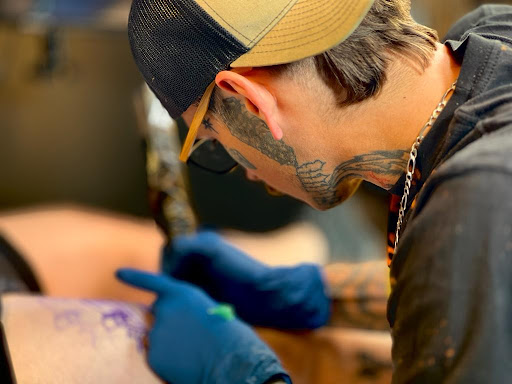
A tattoo can be used to express an idea, emotion, or cherished memory that one wants to carry with them forever.
Regardless of whether you choose to tattoo yourself to remind yourself of an important lesson or to commemorate something that simply makes you happy, your tattoo will resonate with profound meaning. Here are some of the most common things tattoos say about a person:
You Have a Strong "Sense of Self."
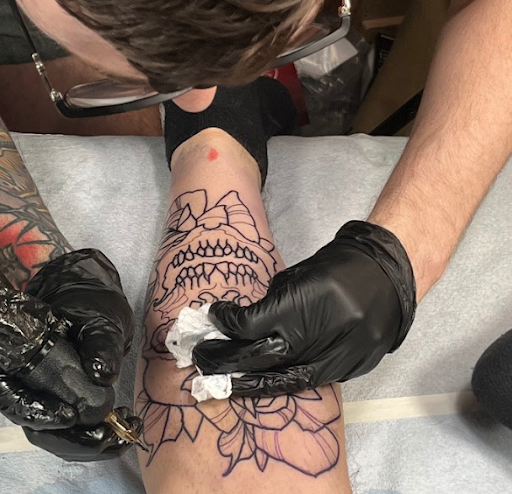
Today, an increasing number of people perceive tattoos as unique marks. They serve as a means to express the qualities that set us apart from others.
Within the realm of psychology, the concept of "sense of self" refers to how you contemplate your personal traits, beliefs, and aspirations, as well as how you perceive yourself.
As you navigate life, you naturally differentiate yourself from your surroundings. You develop your personality, preferences, and pursue your dreams. In other words, you embark on a journey of personal growth and self-discovery, gradually finding what makes you unique.
People with tattoos show strong self-expression and a personality that allows them to not care about people's opinions of their tattoos. Instead, it is more important for them to project who they are to the world.
Risk-taker and Thrill-seeker
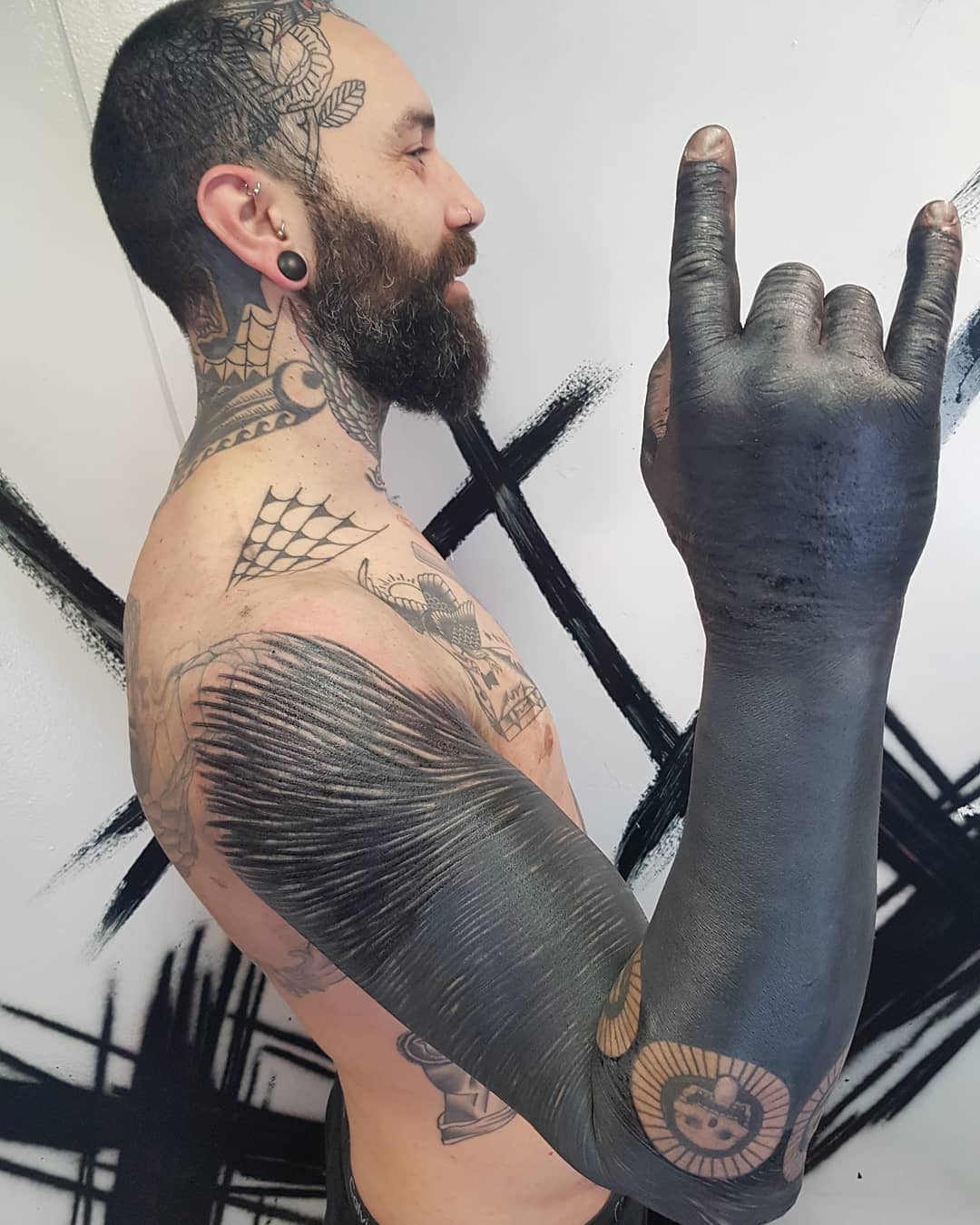
A notable psychological explanation for tattoos is rooted in the notion of risk-taking behavior. While this idea often lends itself to negative stereotypes, it also suggests that individuals who get tattoos are often inclined to seek thrilling experiences.
This theory gains some traction when considering the pain experienced during the tattooing process. The pain that’s associated with tattoos is part of the allure for some people. For example, this can be seen in the “brutal black” project, where the goal is specifically to push the body to its limits. The tattoo artist doesn’t work with a specific tattoo design and instead focuses on the individual’s pain levels.There's Something - or Someone - You Want to Remember
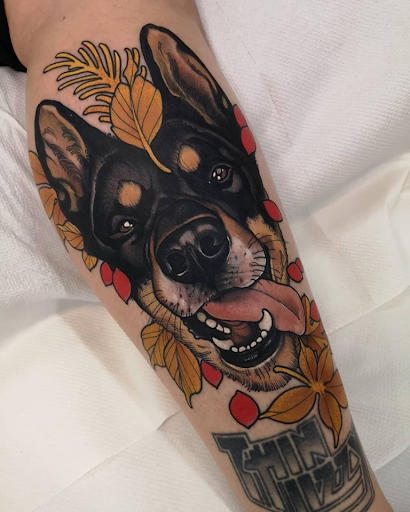
A large number of individuals choose to get tattoos as a means of creating lasting memories.
These tattoos serve as snapshots or verbal mantras; they're visual representations that will continue to share a particular message or sentiment. They have the power to narrate an unforgettable story, allowing one to revisit a significant moment or pay homage to a loved one. This is why many realism tattoos are portraits of friends, family members, or pets.There's Something Others Should Know About You
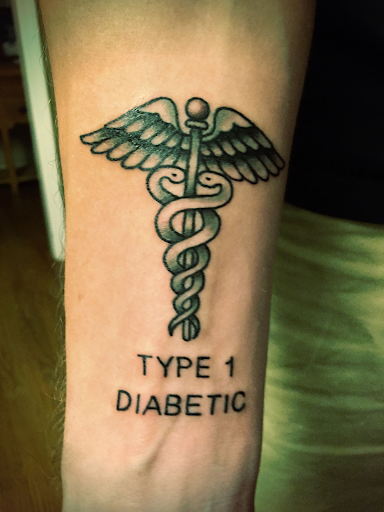
Many tattoos show the world a specific belief or value - something you hold strongly enough to tattoo it on your skin. However, the idea of sending a message to the people around you is much more literal for some.
For example, medical tattoos can let other people know that someone is diabetic or what type of help they might need in an emergency.Fun Fact:
Recent research has led to “medical monitoring” tattoos. While they are not currently available, they have ink that allows a person to monitor their immune system and other health indicators.
What Tattoos Don't Say About a Person
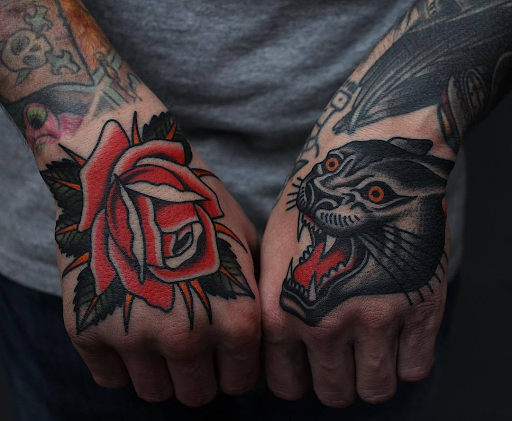
We’ve talked about what tattoos say about a person; now, let’s talk about what tattoos don’t say about a person. People with tattoos are not:
In the past, tattoos were not associated with positive traits. However, as tattooing has seen rising popularity with the younger generation, body art is now seen as a means of self-expression. Nearly half of millennials have taken part in this new tradition by getting one or more tattoos.
What Tattoo Placement Says About a Person
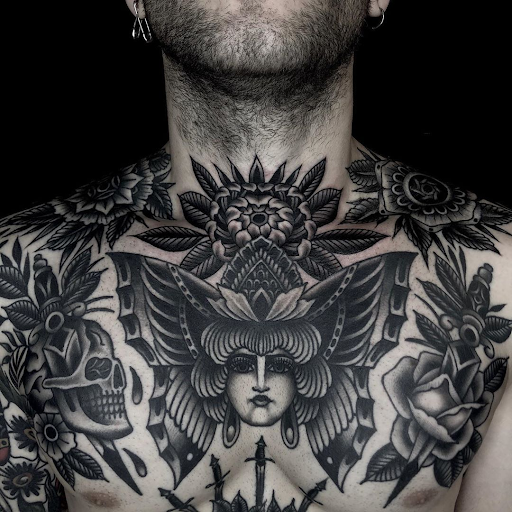
It's believed that tattoo placement influences what a tattoo says about a person. For example:
Finger tattoos
These tattoos tend to be smaller and are not as common. Those who get finger tattoos are bold and forward. It's commonly done by those who want to make a statement and are not afraid to be free-spirited.
Chest tattoos
A chest tattoo tends to represent something significant in a person's life. However, the size of the tattoo does matter in this instance.
For example, a large tattoo close to the heart represents something dear to the individual. Chest tattoos tend to have a romantic meaning and are symbols of love. Those who get a chest tattoo are seen as confident people.
Neck tattoos
Neck tattoos can mean different things depending on where the tattoo is on the neck. A tattoo on the front of the neck is one of the more visible areas and means the person who has it is open to everyone and tough.
A tattoo on the nape of the neck represents something totally different. It’s a common choice for those with long hair who want to be able to cover the tattoo up as they please. People who get tattoos on the nape of their neck tend to be more reserved and shy.
Arm tattoos
Just like chest tattoos, the size of an arm tattoo changes what people think. Those with half sleeves still want a more traditional career but also want to showcase their creativity.
Forearm tattoos
A forearm tattoo can be hidden, but not easily. This portrays the idea that those with forearm tattoos are very confident. Additionally, a serious tattoo on the forearm shows that the person with it is tough and strong.
Ankle tattoos
Those who get ankle tattoos are seen as more reserved and don't want to bring much attention to themselves.
Additionally, these tattoos tend to be on the smaller side due to the limited space. Combining these two things makes them a popular choice for those who want a small tattoo that they can disguise easily.
Back tattoos
Back tattoos are often considered to be low-key because they're only seen sometimes. However, it's important to note that while these tattoos are seen as low-key, the person with a back tattoo is commonly perceived as tough. Back pieces are big commitments - and require a person to go through a lot of pain.
Are People With Tattoos Different From Others?

No, people with tattoos are not different from others. The development of different personality traits is independent and is not influenced by whether a person has tattoos or not. Tattoos do not serve as the cause, as personality traits precede the presence of tattoos.
However, it’s interesting to see that tattooed individuals tend to share some of the same personality traits like creativity and bravery.
Learn to Tattoo From Professional Tattoo Artists
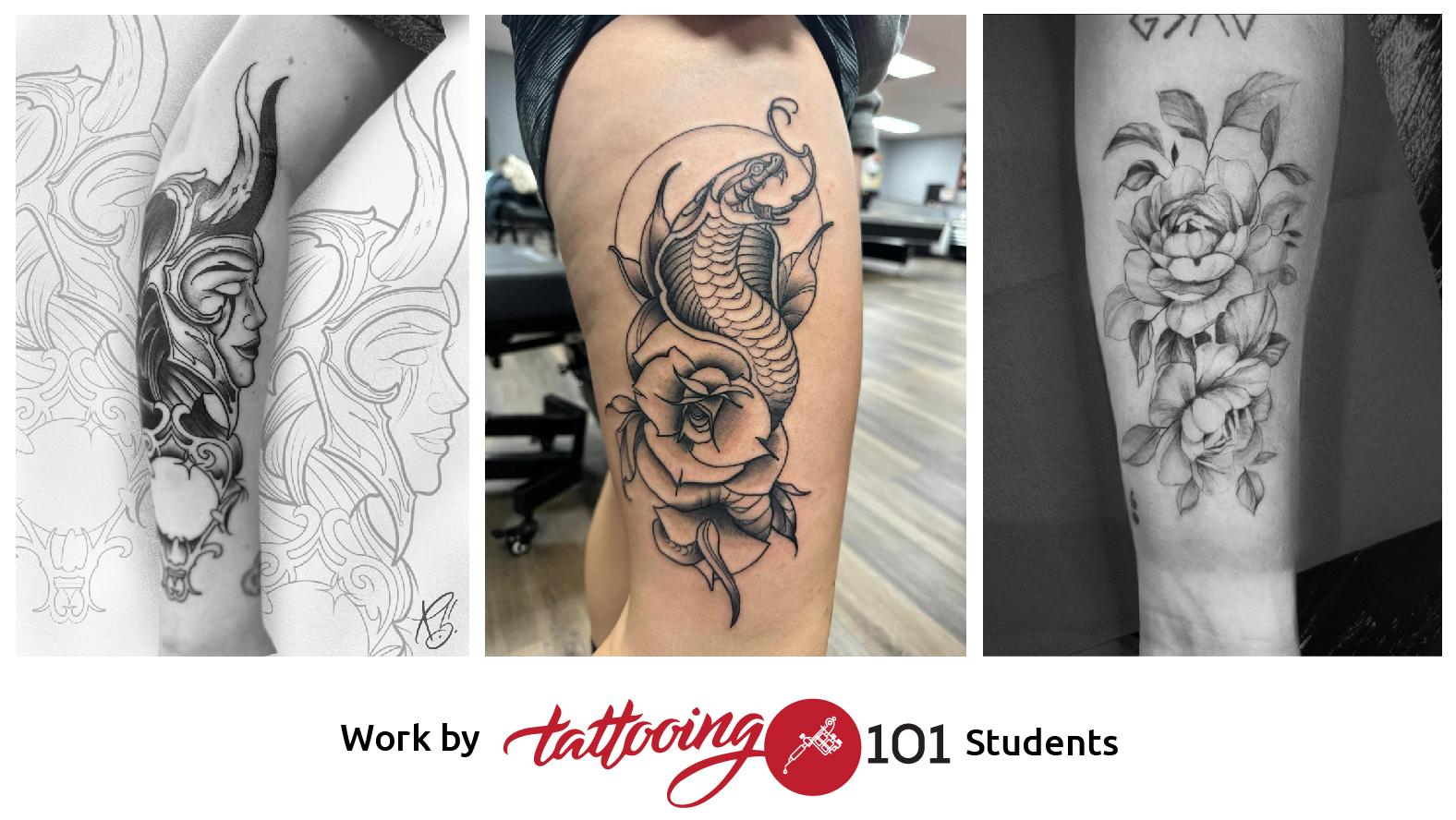
Having a career in tattooing is not only fulfilling, but it’s also the most stable way to make a living as an artist. However, for decades, the process to become a tattoo artist has been notoriously difficult.
The apprenticeship process requires aspiring tattoo artists to work 50-60 hours a week without pay for 2-4 years. That, combined with the toxic culture of abusing apprentices, makes getting into the industry almost impossible for newcomers.
That’s why we created the Artist Accelerator Program. Our online course provides a simple, structured way of learning to tattoo that has been proven to work by over 2500 successful students, with many of them having gone on to open their own shops all around the world.
Inside the program, we’ll take you through every step of the tattooing process in 9 clear, easy-to-follow modules and support you along the way within the Tattooing 101 Mastermind online community.
In the Mastermind group, you’ll collaborate with other students, get answers to your questions, and receive personalized video feedback on your artwork and tattoos from professional tattoo artists. With this friendly community of both new and experienced tattoo artists, you’ll never be stuck again.
When you join the Artist Accelerator Program, you’ll have instant access to the full course and the Mastermind community, as well as our 30-Day Flash Challenge and recorded interviews with tattoo artists from all over the world.
Click here to learn more about the Artist Accelerator Program.

